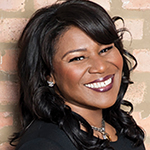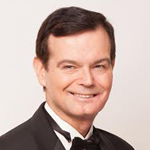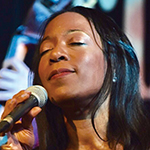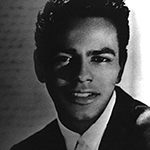Nicole Henry
An Evening with Nicole Henry
Birdland, NYC, July 10, 2023
Reviewed by Alix Cohen
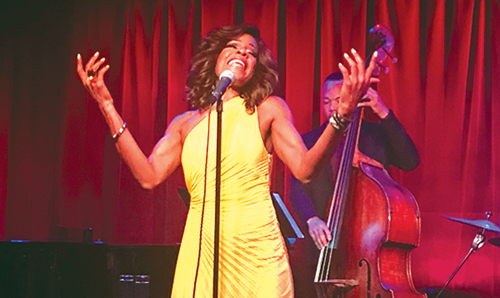
Nicole Henry
Nicole Henry is a force of nature in five-inch stilettos. To say she’s expansive is to minimize her high-stakes approach. Muscular vocals emerged as jazz fusion; rhythmic dexterity offered textured arrangements that shouldn’t have worked in combination with lyricism but did. Sexual innuendo and longing sounded like gospel. Her control was remarkable.
“Almost Like Being in Love” (Frederick Loewe/Alan Jay Lerner) kicked off exuberantly. Shedrick Mitchell’s piano whirled and leaped as if sprung, yet the center held. “Your Smiling Face” (James Taylor) started breathy, then climbed and stretched. There was nothing folksy about it. Henry bounced slightly. “La, da, dah, yes, oh yeah” she sang as he hands slid down the mic stand and opened in hopeful anticipation.
“How Glad I Am” (Jimmy Wilson/Larry Harrison) unfurled like a bolt of rich satin; brushes circled. “My love has no beginning/My love has no end” Henry almost cooed. Watch carefully. Sometimes there was a little ping of the head with an octave change. “Midnight at the Oasis” (David Nichtern) was just fun; Henry danced. There go the hips! She was infectiously tickled pink. If this were a Hirschfeld drawing, her expressive arms would rule. The tune swung. A last “ooo, ooo, ooo” could have been an adhan (Islamic call to prayer) as easily as a mating call.
Billy Miles’ “My Love Is” began with Eric Wheeler’s cool bass that was plucked, slid, paused, and tapped and then eased into a groove. “My love” (her hand stroked her collar bone) “is a mountainside” Henry dipped. She and the bass vibrated in tandem. Singing “In my heart,” her left foot kicked back, “you’ll always be mine.” This was a superb arrangement.
Irving Berlin’s “What’ll I Do?” was prefaced by an overlong story about the writer’s love life. The pianist’s hands stroked with purpose and precision. The song was delivered, not in its usual wistful rendition, but as a mid-tempo torch, its wrenching questions faded unanswered. “Is It a Crime?” (Sade Adu/Stuart Matthewman/Andrew Hale) slid in on repeating bass riffs.
The band joined in with a tuneful moan. Keith Loftis’s mellow sax supported Henry as she massaged the lyrics. Her vocal was pliant; she kneaded the lyrics as the bass tip-toed, the sax circled, and drummer Charles Haynes’ brushes tapped.
“Wild Is the Wind” (Dimitri Tiomkin/Ned Washington) was languid and sultry. Henry evoked a stretching cat. Her arms extended towards us on the phrase “Let the wind blow.” The sax hummed. J. Leslie McFarland’s “Won’t Be Long” was funky. “It’s a Monday night/I just want to see you all shake a little bit-quiver!” she exhorted. The vocal and accompaniment did a 1950s call/response. The sax let it rip and the piano boogied and made every note decisive. The percussion ratcheted up with wowza skill. Henry’s singing was evangelistic.
Unfortunately, Henry seems to find inspiration elsewhere. Though she gracefully pivoted, she rarely looked at us and mostly performed with her eyes closed.
Her technical virtuosity often rode roughshod over the meaning of the lyric of the song she was singing.


